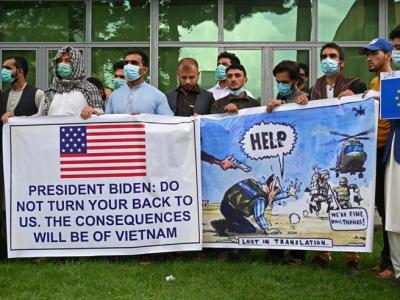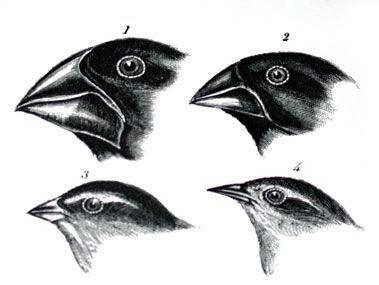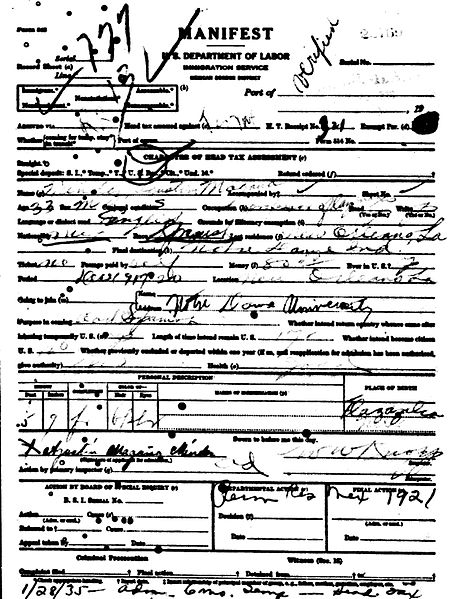PART I
We begin!
What does it mean to say that we are at a critical juncture in history? And if we are at this point, how can we study it while we are literally living in it?
Over the past couple centuries, multiple populations grew accustomed to living in the era of the Modern Nation-State. In this opening section of our course, I shall outline the defining aspects of this unique human invention. I shall also outline the characteristics of the particular expression of this state that we have known best and from which we have profited immensely: Liberal Democracy. I will draw a connection between two perspectives we all share in common: “modernity” and “liberalism.” At this early point in the semester, we will deal with several abstract concepts. In the coming weeks, these abstractions will become real to you when we explore the origins and evolution of a distinct type of state: the Liberal Nation-State.
My personal guarantee: By the end of this course, you will see how my abstractions fit together into one dynamic story. You should also have a sense for what it means to live in a time of radical uncertainty.
I am telling a story with no clear ending. This is a good academic story. More importantly, it is your story, too.
To get us moving, I have created a lot of reading assignments for this week, and especially for your first discussion section on Friday.
1. LECTURE: Monday, August 23
Reflections on the making of the Modern Nation-State and the indeterminate nature of human activity.
 We leave Afghanistan to its fate . . .
We leave Afghanistan to its fate . . .
Today’s Assumption: The Modern Nation-State is distinguished by the underlying idea that one can bring together different peoples and contending identities under the rubric of a common community. This state form represents a novel way of organizing human beings. To be clear, not all states are Nation-States. And, not all peoples want to live together.
Consider the tragic consequences of our failed experiment in nation-building in Afghanistan. If only our politicians had been better historians, we would have known what we were getting into. And then, we would appreciate our role in the devastating circumstances that we left behind.
Assignment: Watch the video below and reflect upon the nature of historical change. Also, look ahead to your Friday discussion section. You will have a paragraph assignment

The nature of historical change as seen by a paleontologist. A fabulous thinker, Steven Jay Gould, offers approach to studying fundamental change that I find totally convincing—evolutionary theory. Watch at least the first 6 minutes of this stimulating video: WATCH As you listen to Gould, ask yourself how his arguments about both human evolution, “punctuated equilibrium” (what does this concept mean?), and the extinction of dinosaurs can be applied to the evolution of political ideas and institutions.
Are currently living in a state of punctuated equilibrium? I think so.
2. LECTURE: Wednesday, August 25
Reflections on what it means for citizens of the United States to live in modern times.
Today’s Assumption: We are all Modern. By this statement, I mean that we share conceptions of truth and ideas about how to organize our lives which differ fundamentally from those held by other societies in the world.
An essential part of being modern is agreement on facts. Thanks to our capacity to reason, we pursue factual knowledge and build theories by using the scientific method (even though we don’t always recognize that this is what we are doing). The acceptance of a factual claim (e.g., a heliocentric model of our solar system) does not prevent us from holding a religious faith (e.g., the existence of God). The believer’s faith in God may be just as true as factual knowledge. For example, facts cannot tell us how to act. In contrast, religious faiths can do so. For this reason, I believe that certain aspects of my personal faith–especially the obligation to treat people as having intrinsic dignity–are no less true than the claim that the earth rotates around the sun. No matter what any non-religious person says, they are not my opinion. Like America’s founders, I hold them to be “true and self-evident.”
Throughout much of its modern history, the Catholic Church has maintained that there is no contradiction between the acceptance of factual knowledge (reason) and faith—these twin truth claims are simply different forms of knowing.
Jen Christensen, “The Most Accurate Clock in the World is Redefining the Second” READ What can a mechanical clock tell you about modern society?
Truth-telling is a big theme in this course. Read what Oprah Winfrey has to say about pursuing the truth: READ
Alan Burdick, “Some Good News, and a Hard Truth about Science,” New York Times, November 18, 2018 READ
How should we judge the quality of a new source in a liberal democracy? In my view, the most reliable news sources admit when they are wrong. Here is a link to a series of articles in the New York Times in which contributors from different political camps admit when they were wrong. If you don’t have a subscription to the NYT, you won’t be able to read all of these articles immediately. However, you can get the paper for free through Hesburgh online.
Here are the “confessions” of two writers, the first on the moderate right, the second on the moderate left:
David Brooks, “I Was Wrong About Capitalism” READ
Gail Collins, “I was Wrong about Mitt Romney” READ
What should we make of the quality of a news source that never admits to its mistakes?
Not to get too provocative (!), but what should we make of any person we encounter who never admits to making a mistake?
NOTE: At the bottom of your assigned readings for our first discussion section on Friday, there is a writing assignment. Be sure to complete it by Thursday at 5 and send it to your respective TA.
3. DISCUSSION SECTION: Friday, August 27
Here is your discussion theme: “What does it mean to be a real American?”
How do we decide who belongs in the United States? How do we decide who does not? Assuming you are an American citizen, how did you acquire this title? Should every American do more to reasonably be called a citizen? If so, what? Finally, how are Americans doing with their fellow citizens?
Here’s a classic statement: Emma Lazarus, “The New Colossus,” a plaque on America’s Statue of Liberty: READ
There are a lot of readings for this discussion section. And why not! Some are short. Make sure you read all of them.
Trigger Warning for Liberals! Many of these readings come from conservative sites and/or conservative writers. Pay particular attention to the two primary readings by Huntington and Gorman:

Primary Reading #1: Samuel Huntington, “The Hispanic Challenge” (Foreign Policy): PRINT AND READ
Huntington was a preeminent political scientist. Note his incredible prediction on p. 14. This is a controversial article.
Edward Hudgins, “What is an American?” (the libertarian Cato Institute) READ
“Alan Dershowitz, “Birthright Citizenship is Bizarre” (the Alt-Right Breitbart News) READ
And not so much on the Right:
Primary Reading #2. Amanda Gorman, “The Hill We Climb”
Finally, ask yourself this question: What is an American Car? READ
Why on earth would I pose this question?
Assig1nment: Write a one-paragraph (no more!) response to the following question: “In your opinion, what is the single, most important requirement for being a ‘true American’.” You may only choose one requirement. The point of your paragraph is to persuade the reader why it is the single, most important factor.
You should send your TA one-paragraph response by 5:00 pm on the Thursday preceding every Friday discussion section. All paragraphs should be typed and double-spaced (12 point font).
Your TA will be happy to talk with you about this assignment or any future assignments.
4. LECTURE: Monday, August 30
Reflections on a political invention, the Liberal Nation-state. Liberalism is a specific set of principles according to which some human beings have organized their relations in modern times. However, it is not the only expression of modern politics. As we shall see later in this course, Fascism and Leninism are also forms of modern politics. As we look into the future , there will be seemingly self-evident political identities that are not liberal at all. I think we are experiencing elements of these post-liberal identities right now.
Abraham Lincoln invents the liberal nation-state: READ
Today’s Assumption: We are all Liberals! (Sorry, Mitch McConnell and Rand Paul, but it’s true.) However, this is no cause for alarm for political conservatives (at least traditional ones). In making this claim, I do not mean that we are all “liberals” in terms of our political affiliation. Making concrete political decisions on a daily basis is necessarily complex—just like good wine. Thus, it is reasonably–indeed, to be expected–in a truly liberal society that people and parties should disagree about what constitutes good policy.
Rather, in using the term “liberal,” I am referring to classical liberalism, a conception of political order that was invented–not discovered–by people like John Locke, Adam Smith, and John Stuart Mill.
Assignment: Read Chapter II, “On the Liberty of Thought and Discussion,” in John Stuart Mill, On Liberty (1869): PRINT AND READ
Then, listen to musician Frank Zappa talk about freedom of speech HERE Do you agree with Mr. Zappa? If not, where should we draw the line between legitimate and illegitimate free speech in a Liberal society? Or should there be a dividing line at all?
Book banning in America: Readings TBA
